Again our liturgical celebration at this point in time in the liturgical year is a “station liturgy.” Today is the station of the Sunday after the Ascension of Jesus, a particular day in the life of the Church that we are reliving sacramentally and liturgically: day three of the that the 120 apostles were in the Upper Room before Pentecost. We are drawn into the Upper Room, as if were are among the 120 apostles worshiping, as Saint Luke says at the end of his Gospel account, “with great joy, continually in the temple praising and blessing God.” It was liturgy, it was fellowship–as it is in every Christian temple ever since, including our Christian temple, this church. This is how we put ourselves into the Upper Room, by recognizing in a very deep way what we are doing here is what they were doing there; and in fact, continue to do with us: praise and bless God in liturgy and fellowship, participating in the Holy Ghost Who gives life to liturgy and fellowship.
We know the Holy Ghost was present, because Jesus said He would be. Jesus said, “When the Helper comes, Whom I will send to you from the Father, the Spirit of truth, who proceeds from the Father, He will bear witness about me.” The Holy Ghost proceeds from the Father, and through the Son, and the primary activity of the Holy Ghost is to bear witness to Jesus. To the Church in the Upper Room, to the church in New Smyrna Beach, the Holy Ghost reveals Christ to us. The Holy Ghost makes Christ known. We cannot know Christ as anything but a man without the Holy Ghost. To know Christ not merely as man but as God, as the Eternal Word of the Father, the only-begotten of the Father, before all ages—to know Jesus as the Christ, as Lord, as the Son of the living God requires the Holy Ghost. The Holy Ghost, we see again, establishes the Church of Christ, because without the Holy Ghost, there is no Christ to be found in the Church, because Christ is only known by the presence and power of the Holy Ghost. Where the Holy Ghost is, there is the Church. Where the Holy Ghost is, Christ is known.
If Christ is known in a Christian community such as ours, then we speak of Christ being among us. And if He is among us, then we recognize Christ’s existence as a living existence, all through the working of the Holy Ghost. This is why Jesus so often spoke of Himself using the phrase “I am”—I am the vine; I am the good shepherd; I am way, the truth and the life; I am the bread of life, and so on; in Scripture God also is recorded to have spoken this way, such as when Moses learned that God’s name is “I am whom I am.” The gift of eternal life through Christ, the goal of which is to behold God face to face, transfigured along with Him, our own being within Christ’s transfigured Self: the revelation of Christ is a participation in His I Am-ness, a participation that begins really and actually in this life in the Holy Ghost, and happens through the Sacraments liturgically celebrated, and continues into the next, whereby we are invited to continually grow in God’s love and service. Each eucharist we celebrate is like another rung up the ladder to our goal, the divine reality in community with the triune God. Each Eucharist we receive allows us to become what we receive more and more, that we say with Saint Paul, “I am crucified with Christ, nevertheless I live.” “Yet,” he adds, “not I, but Christ liveth in me.”
This is the mystery that the Upper Room Church of Jerusalem, that of 120 souls who began to dwell in Christ, and He dwelling in them. How this happened is that they prayed with one accord in the sacred space Jesus appointed them to after His glorious Ascension. We are told that they prayed together with one accord—meaning, with one heart, with one central purpose: adoration of Jesus Christ the Son of the Living God. We are told that they were full of joy, indeed full of grace. And the simplest way to characterize this is to see that the Upper Room Christians all taken on the heart of Mary, and begun to make the beating of her heart the beating of their heart.
Blessed Mary was with the Church in the Upper Room. And as the 120 began to share together in the joyful recognition that Jesus is their light, Jesus is their salvation, and that the I Am-ness of Jesus is with them in the Upper Room, with them wherever two or three are gathered, with them in their heart whenever they call upon His most holy Name for mercy, with them in Holy Communion, with them through Scripture and the preaching of their brother and sister apostles (preeminently in the preaching of the Twelve)—as they began to share together in the joyful knowledge that Jesus is the Way, is the Truth, is the Life, every word of Mary (the bearer of God, or in Greek: the Theotokos) shined with the glow of her Son Jesus Christ, her Saviour and ours. For who can doubt that in the Upper Room, as all the other apostles looked to her as Mother, that she shared about her Son, especially the profoundly mysterious moments early in the life (the Annunciation, her Visitation with Elizabeth, the Nativity, the Presentation, and the losing and then finding of Jesus in Temple). Who can doubt that her stories had transfiguring power upon them, for the very reason that they had experienced His blessed Passion and precious Death, His mighty Resurrection and glorious Ascension. The key for them to eternal life is the key for us: having in daily remembrance of the presence of Christ everywhere and ordering our lives—ordering our every day—around Jesus and His most holy Name, for this is how the Church renders unto Jesus most hearty thanks for the innumerable benefits procured unto us by Him.
This unfathomable recognition, indeed the true Mystery of Christ, is summarized by Saint Peter: for he said, “The end of all things is at hand.” For us, Christ showed Himself holy (which is His end), that we might become holy through Him (that is, that we might attain our end, which is in Him). And the Christian living with her end in Christ, and living with Christ’s end, was Mary. She understood that all of what He revealed to the world during the years of His most holy human life was, and is, for our sakes. All that He reveals is Christ’s gift to us: to serve one another, and that in everything we do, God may be glorified. Christ’s gift is to us, that we might be transformed, our hearts illumined and on fire, with true knowledge of Christ’s presence everywhere and in all places that, as Saint Paul teaches, we may rejoice evermore, pray without ceasing, and in every thing give thanks: for this is the will of God in Christ Jesus concerning us. This is why our Lord ascended: that in seeking Him, we might find Him, and find Him everywhere, that as we behold the face of every human being, we might see a face being made into the image of Christ, into the image of Jesus Christ, Who lives and reigns with the Father in the unity of the Holy Ghost, ever one God, world without end. Amen.



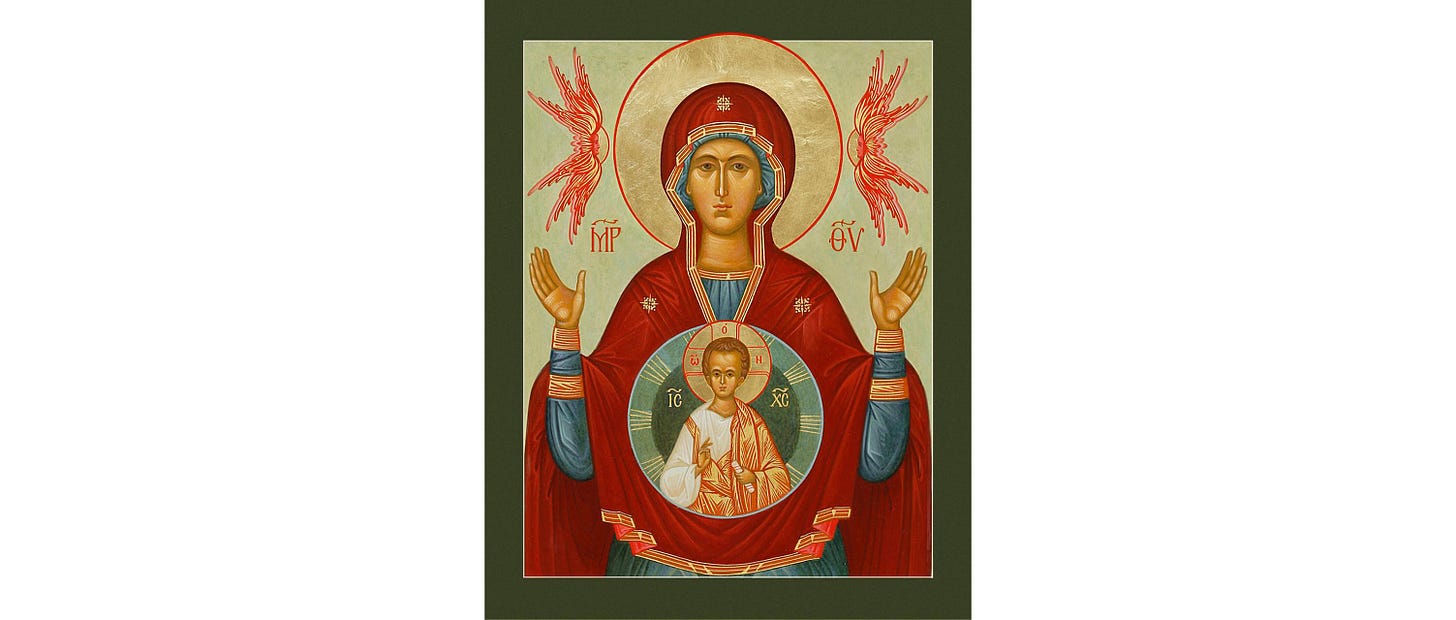

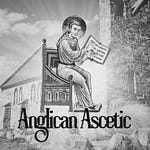
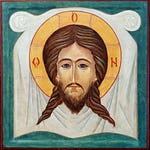

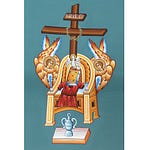

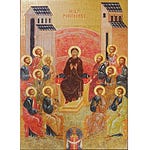

Share this post